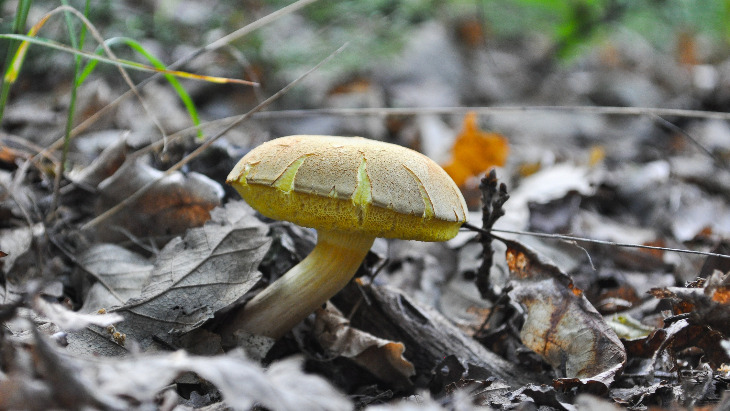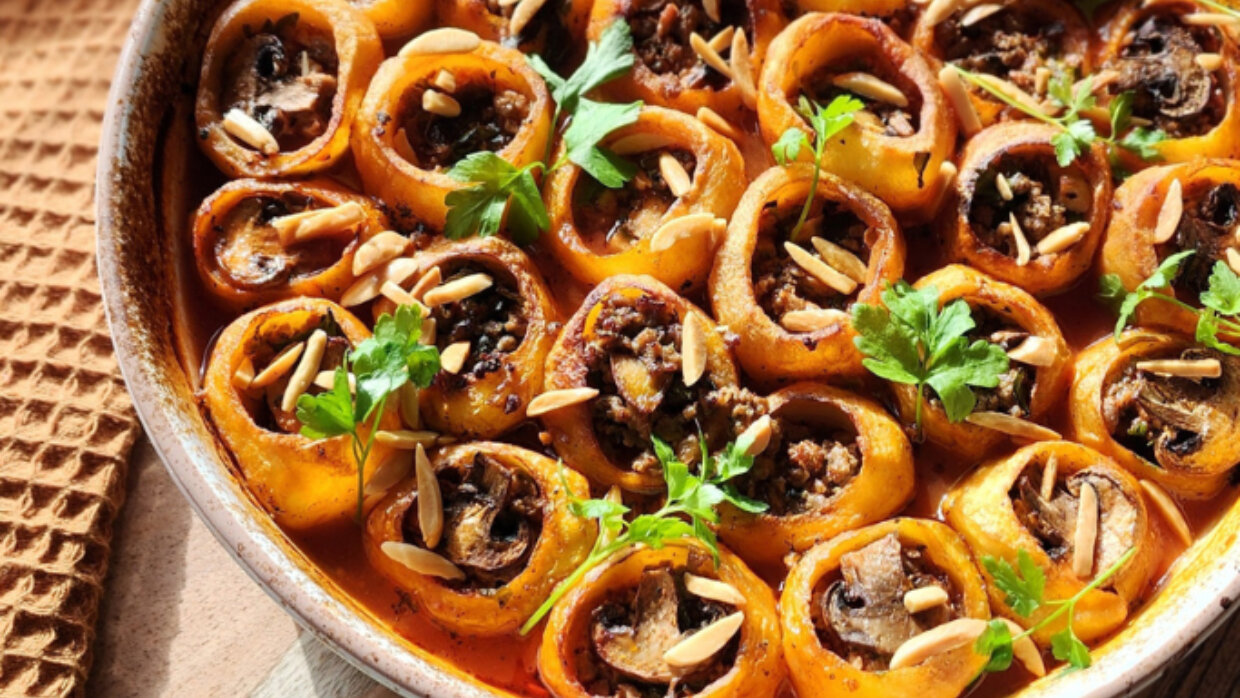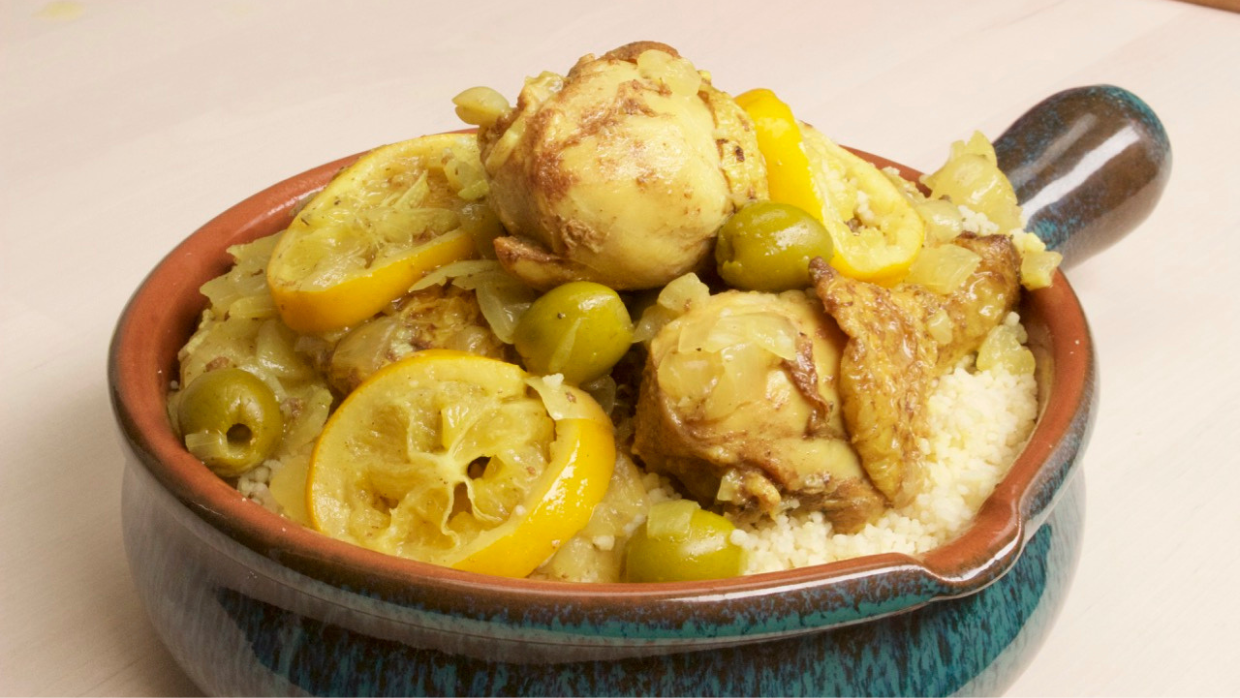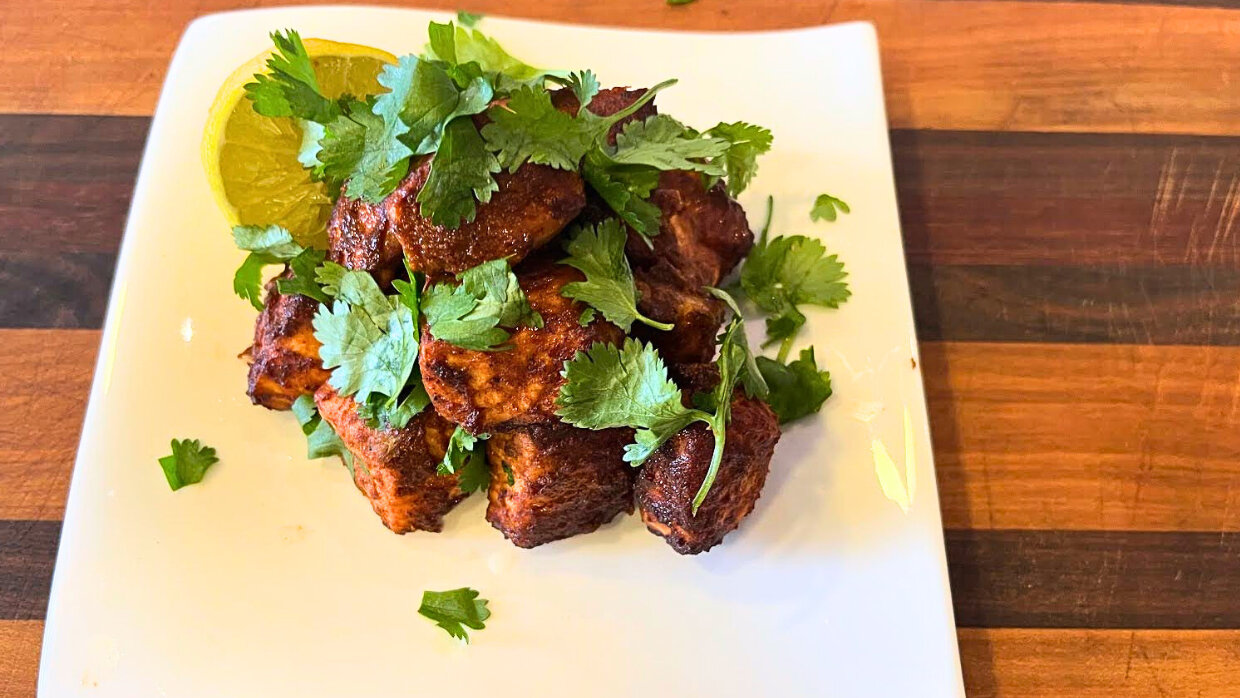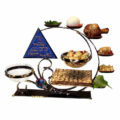Roaming the woods to forage for plants, fruits and nuts used to be the pursuit of mainly innovative chefs and those aspiring to live off the grid. Now, workshops and courses are on offer all over Israel, full of people learning about wild edibles such as mallow, chickweed, milk thistle and fleabane to name a few.
Artist, Keren Farago, started foraging two years ago with Bat Kayma, a company that offers courses in the Upper Galilee and Golan regions. The group meets up once a month, which is perfect, she says, as there is always something different in season.
Farago was attracted to her new hobby as a way to enrich and inspire her artwork. She now incorporates more themes from nature and often uses pages from botanical text books as a backdrop for her painting. Foraging has also given her knowledge of what is growing wildly in the garden of her home on Kibbutz Maayan Zvi. For a recent festive meal, she picked edible flowers from next to where she parks her car and added them to a salad for color and their nutty taste.
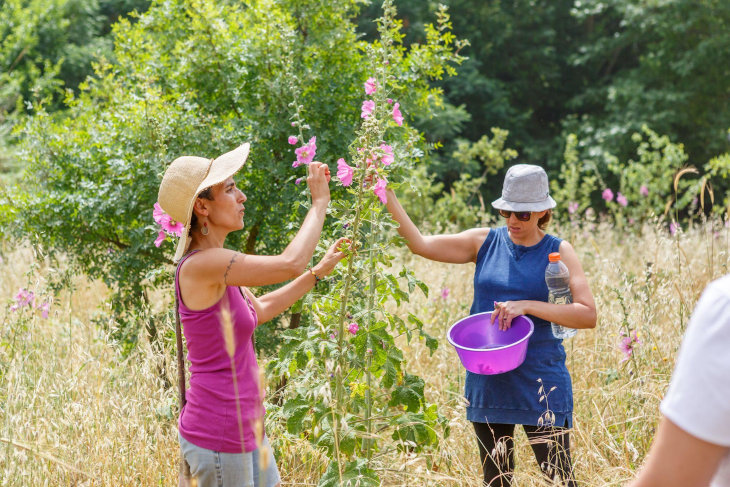 Source: BatKayma.com
Source: BatKayma.com
The communal nature of foraging and meeting new people is also a drawcard for Farago. “It’s fun to meet such a diverse group of people. There are 20 to 30 people and each came for a different reason. One man is serious about his mission to lead a more sustainable life, others are happy to find a new hobby, get out of the city or back to something they enjoyed in their childhood when kids still played outside a lot.” Recently she started a mushroom foraging course with a very knowledgeable guide. “Mushrooms can be very dangerous when they are poisonous, so it’s important to learn from a professional.”
Founder of Bat Kayma, Lilach Mutzafi-Harel, was teaching environmental science at Tel Hai College when she came across a course to be a foraging guide. After completing the program she started giving workshops and this has grown into a company running two, year long programs, more intensive winter and spring courses and even a Witches program which combines foraging, weaving and aromatherapy. In nine years of operation, Mutzafi-Harel says she has seen the popularity of foraging grow immensely. She believes one of the attractions is that it is a way to really change the pace of everyday life and get in touch with all your senses. “We go into nature and don’t only learn to see what is edible, but we also smell, touch and taste it. It’s a sensual experience and it can be a practice to take with you into daily life.”
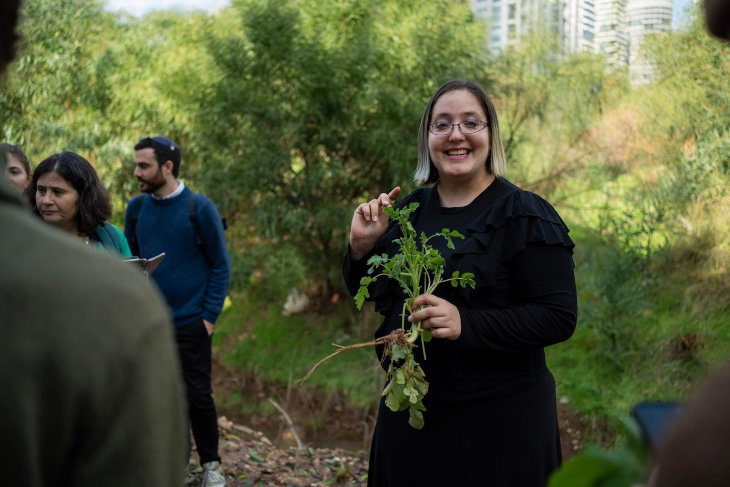
Foodies are definitely attracted to the foraging experiences Adara Peskin-Shalem leads in the Ben Shemen Forest and Jerusalem’s Sacher Park for private groups and hi-tech company team building events. These outings often end up with a ‘nature to table’ meal cooked outdoors with the finds of the day. “It’s one thing to learn about wild plants, but another to realize you can make a flavorful dish out of plants you thought were barely edible. I get excited about what I prepare” she enthuses. Her favorites are wild asparagus sautéed in lemon butter and yellow cactus petals sliced into long strips, similar in texture and shape to green beans. In summer, when mustard and fennel seeds are in season, it’s time for curried wild greens accompanied by paneer, an Indian cottage cheese Peskin-Shalem makes it on the spot with milk, vinegar and salt.
Peskin-Shalem admits she was attracted to foraging around 11 years ago not for culinary reasons but as a measure to lower food bills. “I was a single mom trying to cut costs and also writing a blog about frugal living and this seemed like an excellent way to bring expenses down.” She didn’t always feel this way. It embarrassed her when her mother was driving and would pull the car to a sudden stop when she spotted a wild mulberry bush. A guided Wild Weed Walk on a family camping trip in upstate New York changed her perception. Peskin-Shalem remembers being excited by the colorful edible flowers of the Jewelweed.
It was only while homeschooling her children that she became reacquainted with foraging. “I belonged to an online group of parents’ homeschooling their kids. Often they would write about the edible wild plants they were collecting and I was envious. I was sure that what grew in New Zealand couldn’t be found in Israel but I soon discovered I was wrong.”
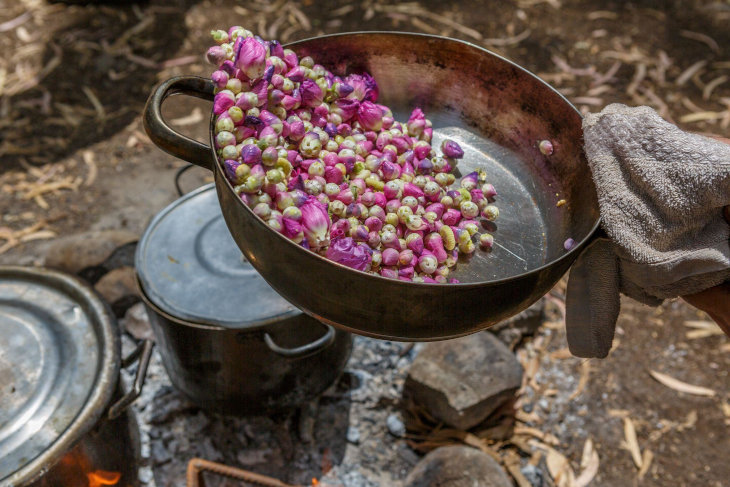 Source: Cooking Hollyhock Flowers at BatKayma.com
Source: Cooking Hollyhock Flowers at BatKayma.com
Tourists to Israel will also value making a direct connection between the native flora and what we read in the Bible. “There are many analogies made between Biblical figures and plants,” Peskin-Shalem explains, “for example, Vashti (from the Purim story) is compared to nettles (sirpad). It’s also fascinating to connect what you find in nature to the cycle of the Jewish calendar. For example, Myrtle berries can be found at exactly the time of Sukkotwhen they can be used for the Four Species. Wheat starts to ripen around Passover and barley, which was sacrificed at Lag B’Omer, can be found here at the same time as the holiday is celebrated.”
Foraging does not have to involve going far from home either, according to Sydney-born Naomi Elbinger, a novelist who lives in Ramat Beit Shemesh and who set up Bloomah’s City Farm, a project which shows how to turn your backyard into a “food forest’. Although she recently organized a Healing Herb and Wildflower Walk for women in the town, she says you don’t need an organized group to start foraging. Just an hour before our conversation, she had dropped her son off at kindergarten, seen a patch of thistles, picked a few and munched on the seeds which she says taste like popcorn but have “the benefit of being a cleansing superfood.” Another of Naomi’s favorite wild snacks is carob, which often grows in city parks. She recommends breaking the pods in half and if they are the good kind, a honey like syrup will ooze out which you can suck.
Foraging takes on a new meaning during shmitta, the year the land in Israel is required to rest, Elbinger points out. “Shmitta can be hard as there are so many things I would like to do in my garden right now but I can’t. So it’s the perfect time to start foraging and connect with the natural world in another way.”





